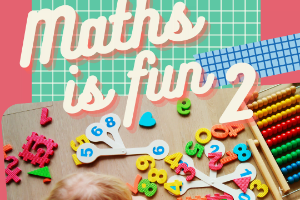Grade 2 Online Maths Classes

What will students learn in this course?
- check Proficiency in counting and simple airthematic operations.
- check Basic learning of two and three dimensional shapes.
- check Great at problem solving skills and choosing smart approach.
- check Enhance students' comprehension and command of fundamental mathematical ideas.
Who is this course for?
- person Grade 2 students
What are the requirements for taking this course ?
- arrow_right Knows counting upto 100 and basic knowlege of shapes
About Course
Introduction
Our classes aim to build strong mathematical skills in young children. These interactive lessons are designed to make learning fun and develop critical thinking abilities. Students will be taught various topics, such as numbers, addition, subtraction, multiplication, division, and time-telling concepts including money and shapes. The lesson plan starts with basic number recognition where students learn to count up to 1000 effortlessly via pictures that help them understand place value positions of tens, hundreds & thousands. This approach creates an easy transition for identifying these values accurately without any confusion or errors.
Course Teaching Strategy
The course aims to simplify addition and subtraction for students while emphasizing fundamental concepts. Students will learn the basic concept of combining two sets to form a third set through examples from everyday life, such as sharing cake pieces or dividing candies with friends. Subtraction techniques involving one-digit numbers will also be covered in the course using various teaching aids like diagrams and images for enhanced understanding.
The tutors also use interactive methods to teach the fundamentals of multiplication by showing repeated addition and integrating studies with fun games. They start with teaching students how to add and subtract single-digit numbers and then build their skills for double digits. Besides that, they provide various ways to help them understand division concepts using images and diagrams as aids for comprehension purposes; these include both sharing principles and repeated subtraction techniques for dividing integers accurately.
In the course, learners will also be introduced to basic geometry which includes naming shapes and objects. This is an engaging section for small learners since it involves identifying common shapes like circles, triangles, squares, rectangles, and hexagons in various items around them. They will also learn about fundamental measurements such as height, length, and width along with concepts of symmetry lines and angles. Additionally, time management skills involving analog and digital clock systems will be taught enabling students to recognize as well as speak time using conventional format comprising of hours, minutes, and seconds respectively. The concept of money counting followed by change-making strategies would also be covered during the training lessons utilizing illustrations complemented by diagrams that aid understanding among young minds.
This course will incorporate quizzes, interactive exercises, and lectures to deliver the learning material. The lectures are designed with simplicity and clarity in mind for easy understanding. Interactive exercises aim to engage students while improving their conceptual comprehension. Tests will be given as a measure of student's overall mastery of concepts; students who have difficulty grasping any topic can access additional help provided by the course instructors who ensure that every doubt is cleared by scheduling separate sessions with dedicated tutors. Students will receive constructive feedback from instructors concerning their development throughout this class, which includes strengthening areas where they need improvement in understanding complex topics or ideas related to mathematics and science disciplines.
Course Outcomes
By the end of this course, students will have a strong foundation in basic mathematical concepts. Tutors will simplify complex ideas and guide each student toward an understanding of numbers, as well as addition and subtraction operations. Additionally, children will learn how to identify simple shapes, measurements, tell time and count money effectively. As part of their education on critical thinking skills through different approaches used throughout the learning process designed to support the future.
Conclusion
In summary, signing up your child for this course can be a smart purchase to ensure their academic achievements in the future. These classes help children develop a strong base of essential mathematical concepts and foster analytical thinking, problem-solving abilities, and numerical proficiency. Their adaptable schedules, ease of use, and secure learning environments conferred by virtual classes offer an excellent option for families seeking top-notch education opportunities that prioritize flexibility and accessibility.